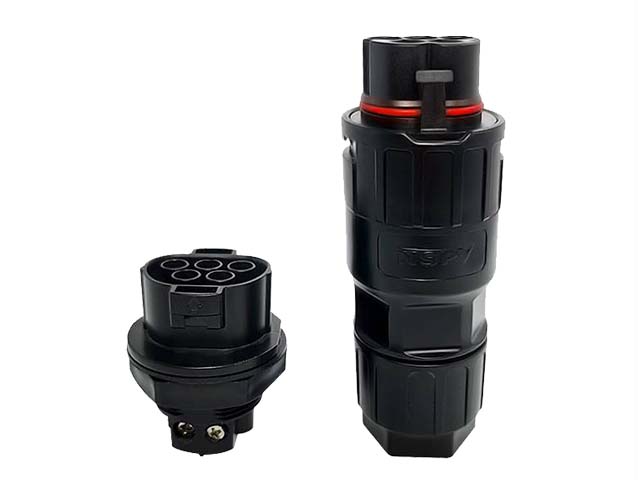In today’s interconnected world, high-speed data transfer is an essential part of our lives. MXC connectors and cabling systems are one of the most efficient and reliable ways to transfer data at high speeds. MXC stands for “Multi-fiber Connector” and is a type of fiber-optic connector that can transfer large amounts of data at high speeds. In this blog post, we’ll explore what MXC connectors and cabling systems are, their benefits, and where they are used.
MXC Connectors
MXC connectors are a type of fiber-optic connector that uses a multi-fiber interface. They are designed to transmit data at high speeds while reducing the space required to connect multiple fibers. These connectors have up to 64 fibers, making them ideal for high-speed data transfer applications.
Types of MXC Connectors
There are two types of MXC connectors: MXC 2.0 and MXC 4.0. MXC 2.0 has 32 fibers, while MXC 4.0 has 64 fibers. Both connectors are similar in design, with the only difference being the number of fibers they can handle.
Benefits of using MXC Connectors
MXC connectors offer several benefits compared to other types of connectors. One of the most significant advantages is their high density. The ability to handle up to 64 fibers in a single connector reduces the space required for connecting multiple fibers. MXC connectors are also easy to install and can be quickly reconfigured, making them ideal for dynamic applications.
MXC Cabling Systems
MXC cabling systems are designed to support high-speed data transfer over long distances. These systems are used in various industries that require high-speed data transfer, such as data centers, telecommunications, high-performance computing, military, and aerospace industries.
Types of MXC Cabling Systems
MXC cabling systems come in various types, such as single-mode and multi-mode fibers. Single-mode fibers use a single fiber to transmit data over long distances, while multi-mode fibers use multiple fibers to transmit data over shorter distances. Both types of fibers have their advantages and are used in different applications.
Benefits of using MXC Cabling Systems
MXC cabling systems offer several benefits compared to other types of cabling systems. The primary benefit is their ability to transfer data at high speeds over long distances. They are also reliable and can handle high-bandwidth applications. MXC cabling systems are also easy to install, maintain, and reconfigure, making them ideal for dynamic applications.
Applications of MXC Connectors and Cabling Systems
MXC connectors and cabling systems are used in various industries that require high-speed data transfer. Here are some of the most common applications:
Data Centers
Data centers require high-speed data transfer to ensure smooth operations. MXC connectors and cabling systems are ideal for data centers as they can handle high-bandwidth applications and can be quickly reconfigured to meet changing requirements.
Telecommunications
Telecommunications companies require high-speed data transfer to provide reliable services to their customers. MXC connectors and cabling systems are used in telecommunications to handle high-bandwidth applications over long distances.
High-performance Computing
High-performance computing requires high-speed data transfer to handle complex calculations quickly. MXC connectors and cabling systems are used in high-performance computing to handle large amounts of data and to ensure fast data transfer.
Military and Aerospace Industries
The military and aerospace industries require high-speed data transfer for communication, surveillance, and reconnaissance. MXC connectors and cabling systems are used in these industries to handle high-bandwidth applications and to ensure reliable communication.
Comparison with Other Connector and Cabling Systems
MXC connectors and cabling systems offer several advantages compared to traditional copper-based systems. Traditional copper-based systems have limitations in terms of speed and distance, and they are prone to electromagnetic interference. On the other hand, MXC connectors and cabling systems use fiber optics, which are not affected by electromagnetic interference and can transfer data at much higher speeds over longer distances.
MXC connectors and cabling systems also offer advantages over other fiber optic connectors and cabling systems. For example, MXC connectors can handle up to 64 fibers in a single connector, making them more efficient in terms of space compared to other fiber optic connectors. Additionally, MXC cabling systems can transfer data over longer distances compared to other fiber optic cabling systems.
Future of MXC Connectors and Cabling Systems
The future of MXC connectors and cabling systems looks promising. As technology advances, MXC connectors and cabling systems are expected to become more efficient, reliable, and cost-effective. One potential advancement in the technology is the use of MXC connectors and cabling systems in 5G networks. 5G networks require high-speed data transfer, and MXC connectors and cabling systems can provide the necessary bandwidth and speed.
Related:
If you want to know more M12 onnector, you can visit here.
Conclusion
MXC connectors and cabling systems are an essential part of our interconnected world. They offer high-speed data transfer, reliability, and efficiency compared to traditional copper-based systems and other fiber optic connectors and cabling systems. MXC connectors and cabling systems are used in various industries, such as data centers, telecommunications, high-performance computing, military, and aerospace industries. With technology advancements, the future of MXC connectors and cabling systems looks promising, and they are expected to play a crucial role in 5G networks and other high-speed data transfer applications.


